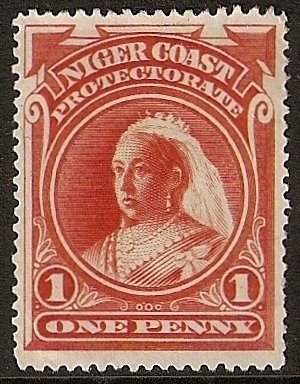Colonial Nigeria
File:United States Navy Band - God Save the Queen.oga}}
Colonial Nigeria refers to the area of West Africa which became the modern nation of Nigeria during the time of British colonial rule, from the late 19th century until 1960. The British influence began with the prohibition of slave trade to British subjects in 1807, and Britain's sphere of influence expanded into the Nigerian interior from the late 19th century. The establishment of the British Protectorate over the Niger River areas included the consolidation of territories through military conquest and treaties over the period leading up to the start of the 20th century.
History[edit | edit source]
The history of Colonial Nigeria is marked by the struggle for control over the lucrative trade routes of West Africa, the consolidation of colonial power, and the integration of indigenous cultures with European administrative structures. The Berlin Conference of 1884-1885, which regulated European colonization and trade in Africa, led to the British control of Nigeria. The area was initially administered as two separate entities, the Niger Coast Protectorate and the Lagos Colony, but was later amalgamated in 1914 to form the Colony and Protectorate of Nigeria.
Early British Influence[edit | edit source]
The British influence in Nigeria began with the abolition of the slave trade. The Royal Navy established the West Africa Squadron in an effort to halt the trafficking of slaves. By the late 19th century, the British Empire expanded its control over the area, establishing the Lagos Colony in 1861. The expansion was partly driven by the desire to protect trade routes and to establish a source of raw materials for British industries.
Amalgamation[edit | edit source]
The amalgamation of the Northern and Southern protectorates in 1914 by Sir Frederick Lugard was a significant event in the history of Colonial Nigeria. This administrative action was taken to streamline the governance of the two areas, which were vastly different in terms of cultures, religions, and economies. The amalgamation facilitated the centralization of colonial administration and the implementation of a unified legal and educational system.
Economy[edit | edit source]
The colonial economy was heavily reliant on agriculture, with the production of cash crops such as cocoa, palm oil, and groundnuts being exported to the British market. The introduction of these cash crops transformed the Nigerian economy and led to the establishment of infrastructure such as railways and roads to support the export-oriented economy. However, this economic focus also led to neglect of food crops, contributing to food shortages and dependency on imported food.
Impact on Society[edit | edit source]
The impact of colonial rule on Nigerian society was profound. The British introduced a system of indirect rule which utilized traditional rulers, but often altered the balance of power and disrupted existing social structures. Western education and Christianity were also introduced, leading to the emergence of a Western-educated elite. These changes had lasting effects on Nigerian society, influencing the path towards independence and the post-colonial state.
Road to Independence[edit | edit source]
The road to independence was paved by the rise of nationalist movements in the early 20th century. Figures such as Nnamdi Azikiwe and Obafemi Awolowo played significant roles in the struggle for independence. The demand for self-governance grew stronger after World War II, culminating in Nigeria's independence from Britain on October 1, 1960.
Conclusion[edit | edit source]
Colonial Nigeria was a period of significant transformation and upheaval. The legacy of British colonial rule is evident in the political, economic, and social structures of modern Nigeria. While colonialism introduced certain advancements, it also created divisions and challenges that the country continues to address.
Navigation: Wellness - Encyclopedia - Health topics - Disease Index - Drugs - World Directory - Gray's Anatomy - Keto diet - Recipes
Search WikiMD
Ad.Tired of being Overweight? Try W8MD's physician weight loss program.
Semaglutide (Ozempic / Wegovy and Tirzepatide (Mounjaro / Zepbound) available.
Advertise on WikiMD
WikiMD is not a substitute for professional medical advice. See full disclaimer.
Credits:Most images are courtesy of Wikimedia commons, and templates Wikipedia, licensed under CC BY SA or similar.Contributors: Prab R. Tumpati, MD



